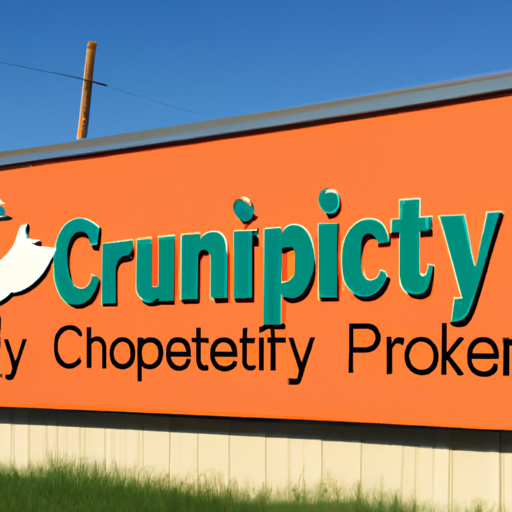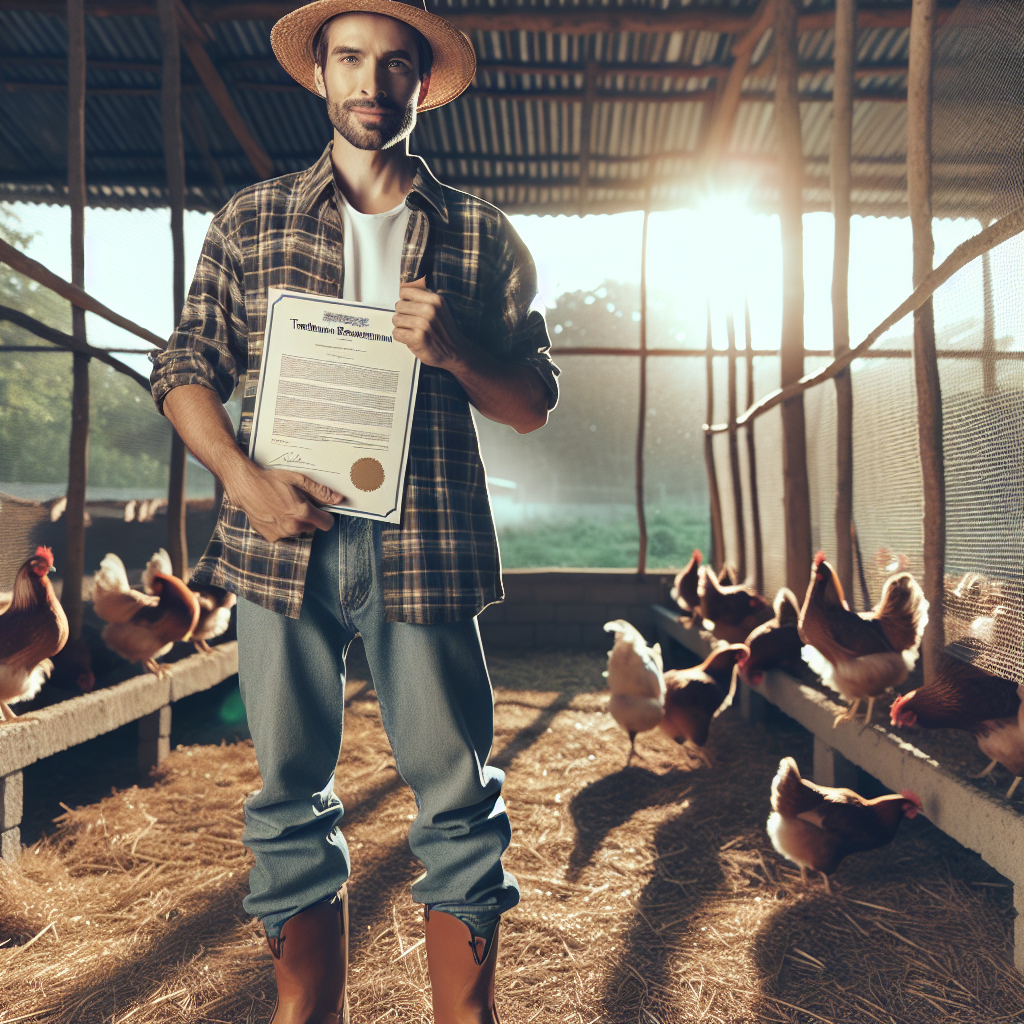If you’ve ever considered partnering or collaborating with other poultry businesses, it’s important to understand the potential regulatory implications. From permits and licenses to health and safety standards, there are numerous regulations that govern the poultry industry. This article will explore the key considerations and legal requirements you should be aware of when entering into a partnership or collaboration with other poultry businesses. By understanding the regulatory landscape, you can ensure that your venture is compliant and successful.
Licensing and Permits
Business Licensing
When partnering or collaborating with other poultry businesses, it is important to ensure that both parties have the necessary business licenses. These licenses vary depending on the location and nature of the business. Before entering into any collaborative agreements, it is crucial to confirm that your potential partner holds the appropriate licenses required by local authorities. This will help prevent any legal issues and ensure that both parties are operating within the boundaries of the law.
Permits and Certifications
In addition to business licenses, certain permits and certifications may be required in the poultry industry. These permits and certifications could include those related to food safety, animal welfare, and environmental compliance. It is essential to thoroughly research and verify the permits and certifications needed by your potential partner to maintain compliance with regulatory requirements. This ensures that both parties maintain the highest standards and reputation in the industry.
Regulatory Compliance
Health and Safety Regulations
Compliance with health and safety regulations is of utmost importance when partnering with poultry businesses. It is crucial to ensure that proper protocols are in place to protect employees, consumers, and the environment. These protocols may include measures such as training programs, regular safety inspections, and the use of personal protective equipment. By addressing health and safety regulations diligently, you and your partner can create a safe and secure working environment that puts everyone’s well-being first.
Environmental Regulations
The poultry industry, like any other industry, must adhere to various environmental regulations. These regulations primarily focus on waste management, water usage, and air emissions. By partnering with poultry businesses that have a strong commitment to environmental compliance, you can collectively reduce your environmental impact. It is essential to collaborate with partners who implement sustainable practices and prioritize environmental stewardship.
Quality Control Standards
Maintaining high-quality standards is critical in the poultry industry to ensure product safety and consumer satisfaction. Collaborating with partners who follow strict quality control measures helps guarantee that the products you offer meet or exceed regulatory requirements. This includes implementing proper testing procedures, monitoring product quality throughout the production process, and ensuring compliance with applicable regulations and industry standards.
Biosecurity Measures
Biosecurity Protocols
Biosecurity is vital in the poultry industry to prevent the spread of diseases and maintain the health of the flock. When partnering with other poultry businesses, it is crucial to establish and adhere to robust biosecurity protocols. These protocols may include measures such as limiting access to farm premises, proper cleaning and disinfection practices, and employee training on disease prevention. By working together and implementing effective biosecurity measures, you can reduce the risk of disease outbreaks and protect your poultry operation.
Disease Control Measures
In addition to biosecurity protocols, it is important to collaborate with partners who are proactive in implementing disease control measures. This may involve vaccination programs, regular veterinary consultations, and continuous monitoring of flock health. By ensuring that your partner follows disease control protocols, you can minimize the risk of disease transmission within your collaborative poultry network and safeguard the well-being of your flocks.
Antitrust Laws
Collusion and Price Fixing
When collaborating with other poultry businesses, it is essential to comply with antitrust laws to maintain fair competition within the market. Antitrust laws forbid collusive activities, such as price fixing and market allocation agreements, that can harm competition and limit consumer choices. It is crucial to conduct business operations with transparency and fair practices, avoiding any actions that could be seen as anti-competitive. By adhering to these laws, you can foster a healthy and competitive marketplace.
Market Competition
Collaborating with other poultry businesses can offer opportunities to strengthen market presence and expand customer reach. However, it is important to maintain healthy competition within the industry. Collaborative agreements should focus on mutually beneficial partnerships that create value for both parties without stifling competition. By embracing fair competition, you can drive innovation, improve product quality, and ultimately benefit consumers in the poultry market.
Supply Chain Regulations
Supplier Auditing
In a collaborative partnership, it is crucial to ensure that supply chain partners meet regulatory requirements and adhere to ethical standards. Regular supplier audits help verify that your partners are compliant with industry regulations and are committed to sustainable and responsible practices. By conducting thorough supplier audits, you can mitigate risks associated with non-compliance and avoid potential legal issues.
Traceability and Labeling
Maintaining accurate traceability and labeling is essential in the poultry industry. Collaborating with partners who prioritize traceability ensures that all products can be tracked from farm to table, which is crucial for food safety and quality control. Additionally, proper labeling is necessary to provide consumers with important information such as product origin, nutritional facts, and any allergen warnings. Collaborate with partners who understand the importance of traceability and labeling to maintain compliance with regulations and gain consumer trust.
Government Subsidies and Grants
Application Process
Government subsidies and grants can provide financial assistance for various poultry-related projects and initiatives. When considering partnering with other poultry businesses, it is important to explore available subsidies and grants to support your collaborative endeavors. Each program may have specific application processes, so it is necessary to thoroughly research eligibility criteria, submission requirements, and deadlines. By carefully navigating the application process, you can access potential funding opportunities for your collaborative projects.
Eligibility Criteria
Government subsidies and grants often have specific eligibility criteria that must be met for successful application. Eligibility requirements may include factors such as location, business size, project goals, and sustainability practices. It is crucial to assess the eligibility criteria for each subsidy or grant program before partnering with other poultry businesses. This will ensure that both you and your partners meet the necessary criteria, increasing the likelihood of securing financial support for your collaborative initiatives.
Labor Laws
Employment Contracts
Maintaining compliance with labor laws is essential when partnering with other poultry businesses. This includes ensuring that proper employment contracts are in place for all employees. Employment contracts outline the rights and responsibilities for both the employer and the employee, covering areas such as working hours, wages, and benefits. By collaborating with partners who prioritize fair and legal employment practices, you can create a positive work environment and avoid potential legal disputes.
Wage and Hour Regulations
Adhering to wage and hour regulations is crucial to protect the rights and well-being of employees in the poultry industry. Collaborating with partners who comply with these regulations helps ensure fair compensation and proper working conditions for all workers involved. Wage and hour regulations include aspects such as minimum wage, overtime compensation, and maximum working hours. By partnering with businesses that prioritize compliance, you can contribute to a sustainable and ethical poultry industry.
Food Safety Regulations
Hazard Analysis and Critical Control Points (HACCP)
Food safety is a top priority in the poultry industry, and compliance with Hazard Analysis and Critical Control Points (HACCP) regulations is essential. HACCP is a systematic approach to identify, evaluate, and control food safety hazards throughout the production process. Collaborating with partners who have a strong commitment to HACCP ensures that all measures are taken to produce safe and hygienic poultry products. By adhering to HACCP principles, you can deliver products that meet the highest food safety standards.
Labeling and Packaging Regulations
Accurate labeling and proper packaging are crucial aspects of food safety and regulatory compliance. Collaborating with partners who understand and comply with labeling and packaging regulations ensures that products are correctly labeled with all necessary information, such as ingredient lists, allergen warnings, and nutritional facts. Additionally, proper packaging helps maintain product integrity and prevents contamination. By working with partners who prioritize labeling and packaging compliance, you can build consumer trust and contribute to a safe and transparent food supply chain.
Trade Agreements and Tariffs
International Trade Regulations
When partnering or collaborating with poultry businesses outside your own country, it is essential to understand international trade regulations. These regulations govern the import and export of poultry products and may include requirements related to health and safety standards, labeling, and documentation. By familiarizing yourself with international trade regulations, you can ensure smooth customs clearance and avoid potential trade barriers or penalties. Collaborating with partners who have knowledge and experience in international trade can greatly facilitate cross-border business operations.
Import and Export Duties
Import and export duties are another important consideration when engaging in international trade partnerships. These duties are imposed by governments and can greatly impact the cost and profitability of poultry products. It is important to understand the applicable import and export duties in the countries involved and assess the potential financial implications on your collaborative projects. By considering import and export duties, you can make informed decisions and strategize effectively to optimize trade opportunities with your partners.
Inspections and Audits
Regulatory Inspections
Regulatory inspections play a vital role in ensuring compliance with industry regulations in the poultry sector. Collaborating with partners who prioritize regular inspections helps maintain a high standard of operations and reduces the risk of non-compliance. Regulatory inspections may cover various aspects, including health and safety, animal welfare, biosecurity, and food safety. By partnering with businesses that embrace regulatory inspections, you demonstrate a commitment to maintaining transparency and accountability in your collaborative endeavors.
Internal and External Audits
Conducting internal and external audits is an effective way to assess and improve compliance within your collaborative poultry network. Internal audits involve evaluating your own operations and identifying areas for improvement. External audits, on the other hand, involve independent third-party assessments of your operations or those of your partners. By conducting both internal and external audits, you can proactively address any compliance issues, enhance your operations, and strengthen your collaborative partnerships.




